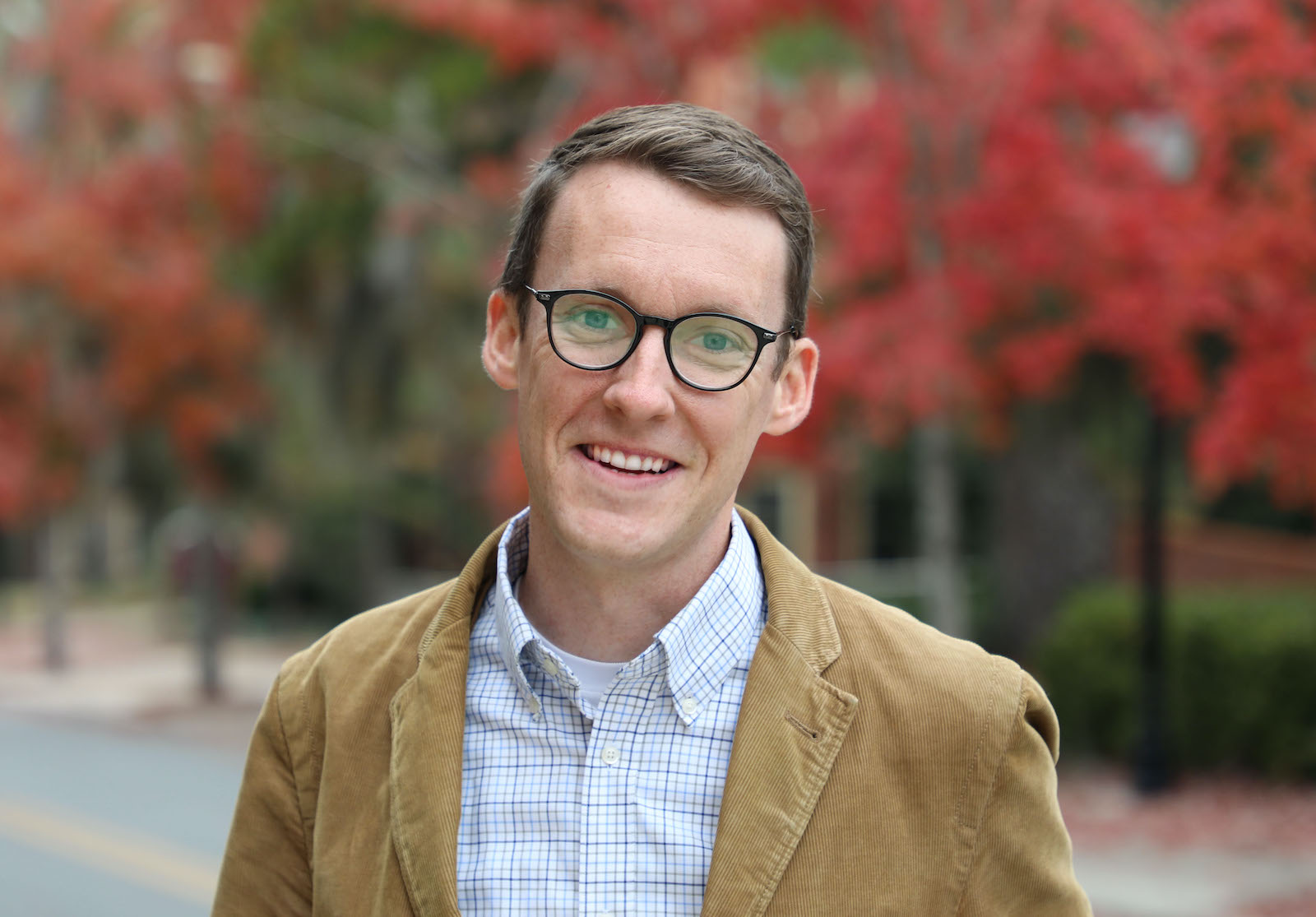FSU philosopher awarded fellowship from University of Notre Dame's Institute for Advanced Study

Florida State University professor of philosophy and NDIAS faculty fellow John Schwenkler. Photo by Amy Robinson.
A faculty member in the Florida State University Department of Philosophy, part of the College of Arts and Sciences, has been offered a prestigious faculty fellowship from the Notre Dame Institute for Advanced Study.
Professor of philosophy John Schwenkler will spend the 2021-22 academic year at the University of Notre Dame, in Indiana, researching the topic of resilient self-belief as a visiting faculty fellow thanks to the $52,000 fellowship.
Since its founding in 2008, NDIAS has fostered issue-engaged, inclusive and interdisciplinary research organized around an annual theme. Approximately 10 faculty fellows work alongside graduate and undergraduate fellows each year to study questions that require a joint focus. These questions also benefit from sustained research and advance understanding of core issues that affect humanity’s ability to lead valuable, meaningful lives, including climate change, the COVID-19 pandemic, technological disruptions and more.
“Yearlong fellowships like this are highly competitive. The NDIAS had more than 160 applicants this year, so receiving it is a tremendous honor,” Schwenkler said. “The news that I had been offered the fellowship had me absolutely thrilled.”
NDIAS’ 2021-22 theme is resilience, and fellows will work on projects related to resilience as it pertains to race, climate change, political systems, emerging technologies, and more. How organisms, people, and systems respond to novel challenges and ethical implications of adaptation will be investigated by humanists, scientists and social scientists, legal scholars, artists, and philosophers, like Schwenkler.
Schwenkler is presently completing the final year of a three-year fellowship from the John F. Templeton Foundation for cross-disciplinary training in other fields related to cognition. This fellowship leads nicely into the work he will be doing with NDIAS.
“Having taken classes in psychology and linguistics through the Templeton Foundation will benefit me in my new endeavors, since one of the topics I will explore in my research concerns how psychological research into self-belief, or self-confidence, relates to the philosophical questions I intend to investigate,” Schwenkler said.
Specifically, he is exploring beliefs humans hold concerning their own future actions and practical capacities. These include beliefs about finishing projects before a deadline and overcoming temptations and bad habits that might prevent doing so.
“On one hand, it seems like such beliefs have to be resilient in the face of evidence because if a person takes their past failings and the likelihood of future temptation as evidence that they will fail, then that will be an invitation to despair,” Schwenkler said. “On the other hand, it seems irresponsible to ignore this evidence altogether. Without taking these facts into consideration, a person won’t be able to change their habits or combat temptation in order to succeed.”
Research conducted with his NDIAS fellowship will allow Schwenkler to write a series of articles addressing various questions about the resilience of self-belief.
“Psychologists studying self-confidence have reached quite divergent conclusions about what accounts for it, and whether it’s better to be more or less confident in oneself. I plan to review this research, articulate the concepts at play, and consider what positions are best supported by the evidence and what they can teach us about the philosophical questions that interest me,” he said.
The NDIAS award makes Schwenkler the third FSU philosophy faculty member to receive a year-long fellowship in the past three years. Professor of philosophy Randolph Clarke was a Laurance S. Rockefeller Visiting Fellow at the Princeton University Center for Human Values during the 2019-20 academic year, and associate professor of philosophy Nathanael Stein won a fellowship from the National Endowment for the Humanities in 2020.
“John is a leading international figure in his areas of interest, which include philosophy of action and mind,” said J. Piers Rawling, professor and philosophy department chair. “This fellowship is a well-deserved honor that adds to the national and international prestige of both the FSU philosophy department and the university as a whole.”
